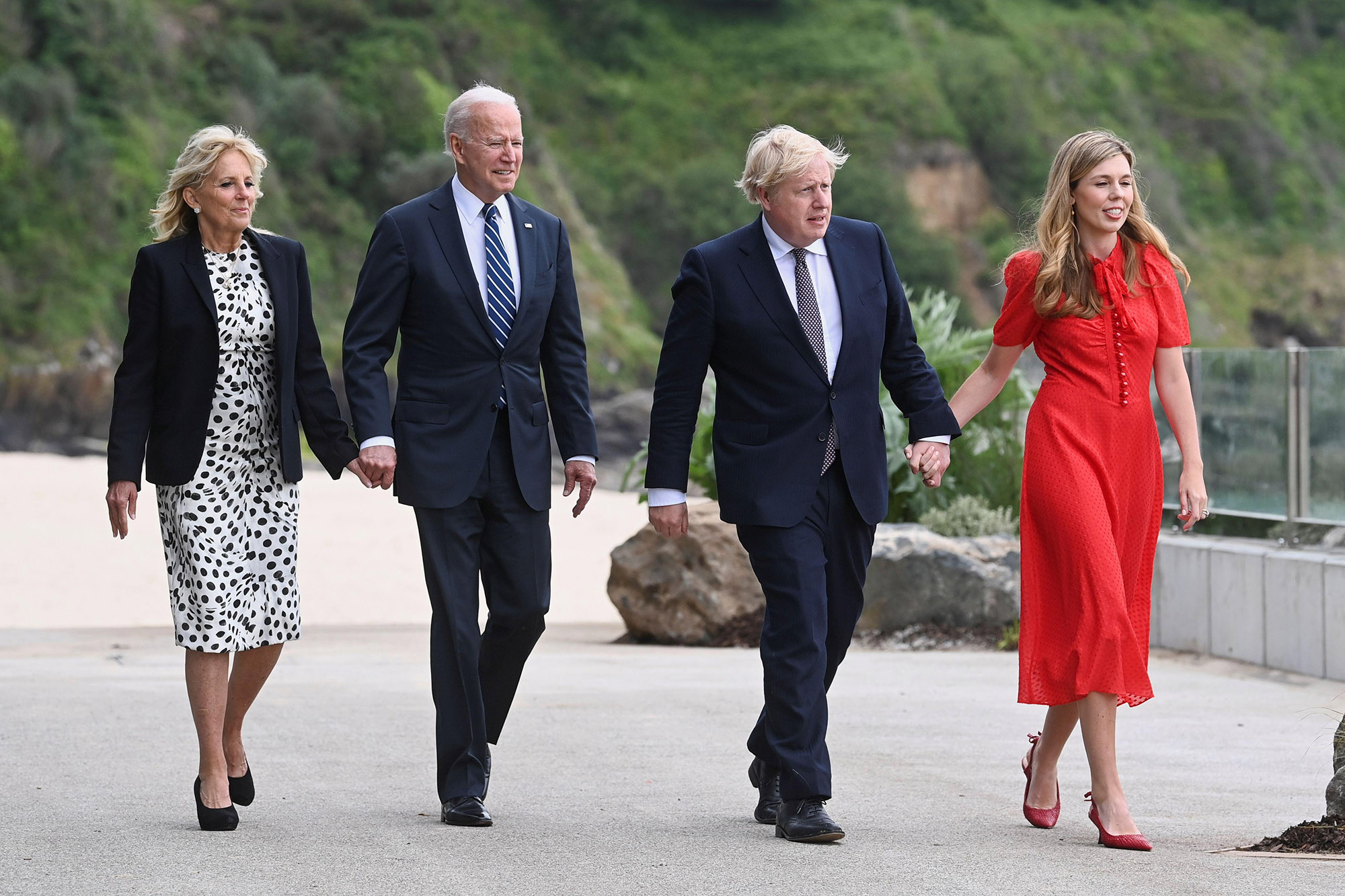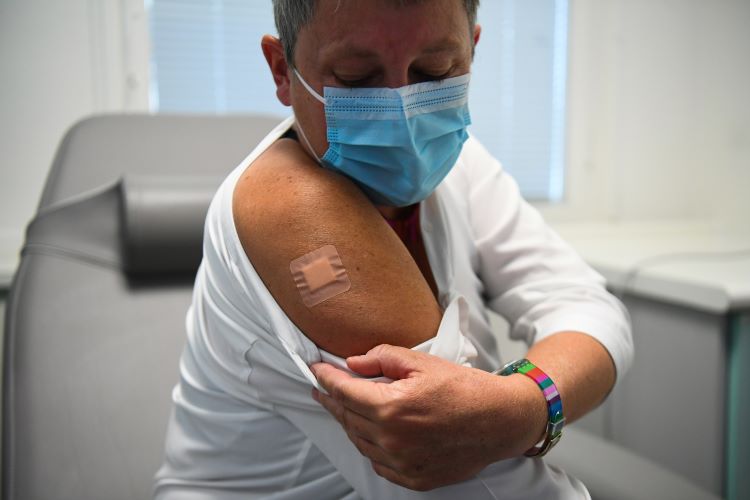How The UK's 100 Million Vaccine Doses Will Be Distributed And Where They Are Needed Most
The UK has pledged to donate 100 million doses in the next year (PA)
7 min read
The UK has joined other G7 nations in pledging to donate Covid-19 vaccines to other countries around the world, but is it enough?
Prime Minister Boris Johnson has pledged the UK will donate 100 million surplus vaccines over the next 12 months, with the first 5 million doses set to be delivered in the next three months.
It comes after US President Joe Biden announced a planned 500 million doses of the Pfizer jab will be donated to low and middle-income countries as he pledged to make the United States the "vaccine arsenal of the world".
But the pledge from G7 countries – 600 million doses over the next year – has come under criticism from global health organisations, who have claimed that around 11 billion doses will be required to bring the pandemic under control.
How Will They Be Distributed?
Around 80% of the UK's vaccine doses will be distributed through the UN-backed Covax programme, which acts as a clearing house for vaccines to be donated to low income countries and those with poor health and social society systems.
Launched in April 2020, the Covax programme is directed by the World Health Organisation, the Coalition for Epidemic Preparedness Innovations, and public-private vaccine alliance group, Gavi, with the group already having signed up 165 countries to the programme. Accepting both surplus vaccine doses and financial support – the UK has already contributed £548m to the programme – Covax has set an initial goal of helping vaccinate 20% of the population in each of its member countries by delivering 2 billion doses by the end of 2021.
Accepting both surplus vaccine doses and financial support – the UK has already contributed £548m to the programme – Covax has set an initial goal of helping vaccinate 20% of the population in each of its member countries by delivering 2 billion doses by the end of 2021.
Unlike direct donation programmes set by individual countries, the Covax scheme splits doses between its member countries, providing them with a proportion of doses and directs doses to those countries most in need, providing a proportion of the vaccines it acquires to countries based on their population.
However, the programme has faced criticism from some public health experts, who believe this blunt approach to dosing fails to take into account the nature of the pandemic in individual countries.
For example, India, is expected to receive at least 80 million doses from the 500 million US pool, despite the country being gripped by a deadly wave of the virus which has pushed health services beyond breaking point.
Unlike other countries with low vaccination rates, India's current wave has been exacerbated by the Delta/Indian variant which has been found to be more infectious than other strains.
Professor Monica de Bolle, a senior fellow at the Peterson Institue for International Economics at Johns Hopkins University, say the case has shown the danger of using a "population yardstick" approach.
"Much has been said about the lack of vaccines in many African countries. But as precarious as this problem is on the continent, African countries aren't currently experiencing the extremely aggressive outbreaks seen in India, Nepal, Brazil, and many other Latin American countries," she wrote. "These cases lay bare the shortcoming of distributing vaccines on the basis of a population yardstick: the metric fails to capture the severity of the underlying public health problems facing different nations."
"These cases lay bare the shortcoming of distributing vaccines on the basis of a population yardstick: the metric fails to capture the severity of the underlying public health problems facing different nations."
She warned the programme also fails to take into account a country's capacity to deliver a mass vaccination programme, pointing to Malawi's decision to burn 20,000 Oxford/AstraZeneca doses because they were about to expire, while South Sudan were forced to send back 72,000 Covax doses for the same reason.
What Is The Scale Of The Problem?
While India and other Latin American countries may be facing particularly severe outbreaks, the minisucle vaccine rates in many African and Middle East countries puts them at severe risk if they were to be hit with a similar wave of infections.
Statistics compiled by Our World In Data, which presents vaccination rates from a range of national and international sources, shows the Democratic Republic of the Congo, which has a population of over 86 million, has delivered just 27,962 first doses of the jab.
Syria, which is still in the midst of a civil war, has vaccinated just 71,000 people, equivalent to just 0.41% of its population.
Aside from the risk of death and serious illness for those living in countries with low vaccination rates, allowing surges to the virus among populations creates further opportunities for the virus to mutate, leading to the possibility of new strains which may be less effectively countered by the current crop of vaccines.
It is why there were severe warnings for the G7 countries that their vaccine pledge so far is woefully inadequate to help the poorest countries, as charities gathered at the Civil Society (C7) summit held Falmouth. The C7 is an official part of the regular gathering of world’s richest nations.
Thoko Elphick-Pooley, the Director of the Uniting to Combat Neglected Tropical Diseases, and a C7 spokesperson said: “It’s nowhere near enough. We are talking about vaccines being available next summer but that really frightens me because my dad, like other Africans, is at risk today. It’s wintertime now in Africa and everybody is really worried about getting Covid. We need them now.”
Some African health systems would be particularly overwhelmed, she said, if there isn’t more urgent action.
Elphick-Pooley, who was born in Zimbabwe, said: “You cannot have millions of people turning up in hospital due to Covid-19 when the infrastructure just can’t cope with it. So there’s a real urgent need that these Covid vaccines are matched with serious money. A vaccine does not deliver itself.”
Her voice cracking, she said it was an emotional issue, having had direct experience of medication for other diseases being “in country” but there is no money to move treatments to the people who need them.
“It’s all well and good G7 right now saying 'yeah we will make these treatments available next year' but what will it take to get it into people’s arms?
“The G7 will fail if there’s no clear roadmap on how you move the vaccine from the manufacturer to someone’s arm,” she said.
What About The Other 20% Of UK Doses?
The government has said the remaining 20 million doses will be distributed to specific countries in need, but have not indicated which nations will receive the benefits or how they will be selected.
President Joe Biden has already stated that doses from the US would be donated with "no strings attached" and that the "vaccine donations don't include pressure for favours or potential concessions".
He added: "We are doing this to save lives, to end this pandemic. That's it."
His comments come amid growing concerns that other nations, including Russia and China, were engaging in so-called "vaccine diplomacy" by providing doses to countries in which they want to grow their influence.
Meanwhile, a dominant theme in talks around global vaccine supply at the G7 is the ongoing split between the nations’ leaders on waiving intellectual property (IP) protections.
France’s President Macron and US President Joe Biden are in favour of removing rules on patents so that vaccines could be more easily reproduced and in turn delivered to the world’s poorest countries. One hundred developing countries are asking for the same thing.
Outside of the G7, South Africa and India, are also pushing for a patents ban which would stop manufacturing being concentrated in the hands of a small number of patent holders.
Health Policy Advisor for Oxfam GB, and policy lead for the People's Vaccine Alliance, said the split at the summit was very real.
At a Civil Society (C7) event in Falmouth, Cornwall, she said: “Angela Merkel and Boris Johnson are currently blocking the way while the other G7 leaders are sitting on the fence.
“Unless we see action taken to fix these structural problems that are constraining manufacturing, and allow the rights and the recipes of these vaccines to be shared openly with southern based manufacturers then we are not going to see a solution and this G7 will be a failure to get this pandemic under control and vaccinate everyone by the end of next year.”
Merkel’s concerns are understood to be that suspending IP protection would prevent innovation in the vaccine sector, and harm production.
The waiver would allow any pharmaceutical manufacturer to create the same Covid-19 vaccines as the initial producer, without being sued for taking the recipe.
